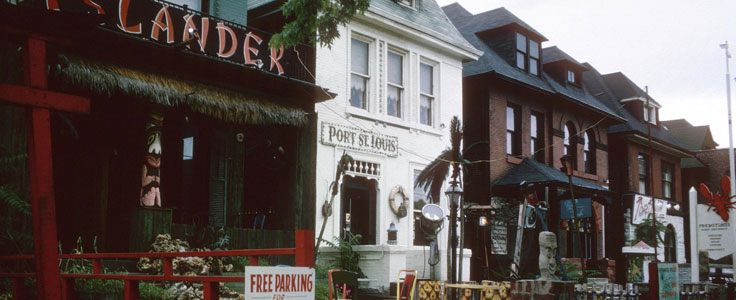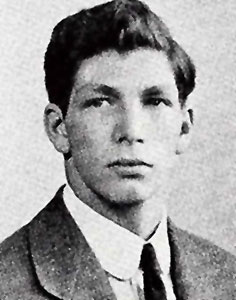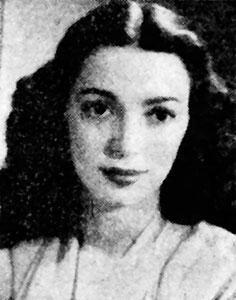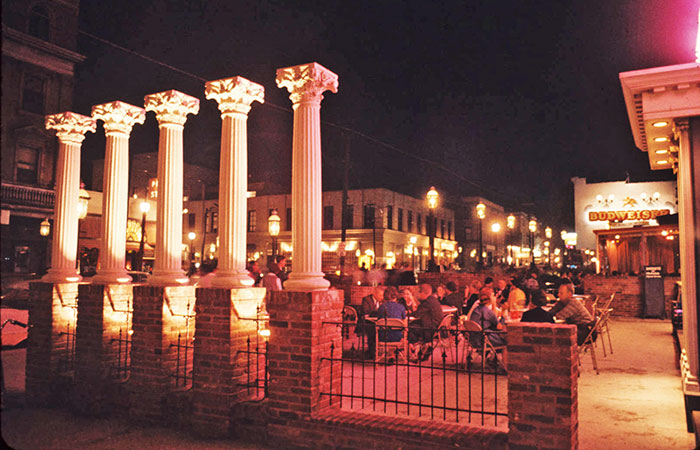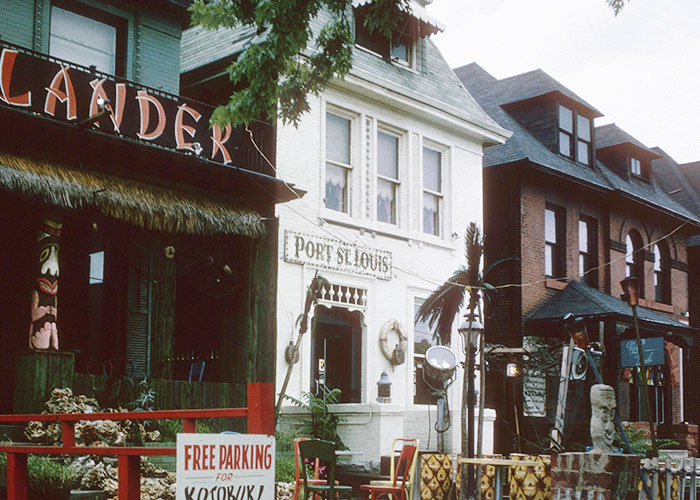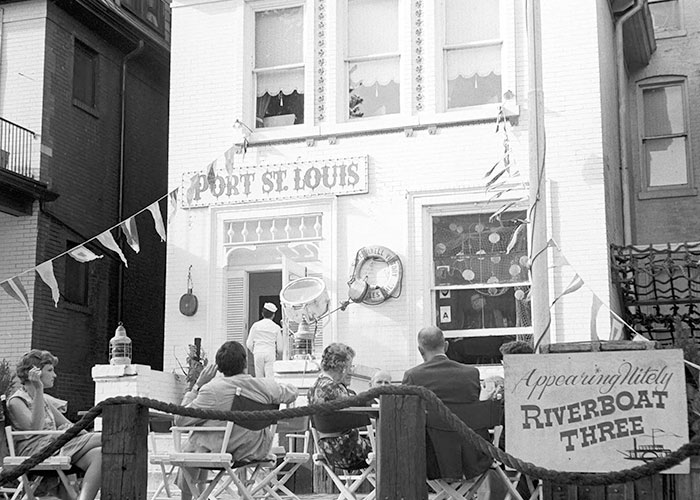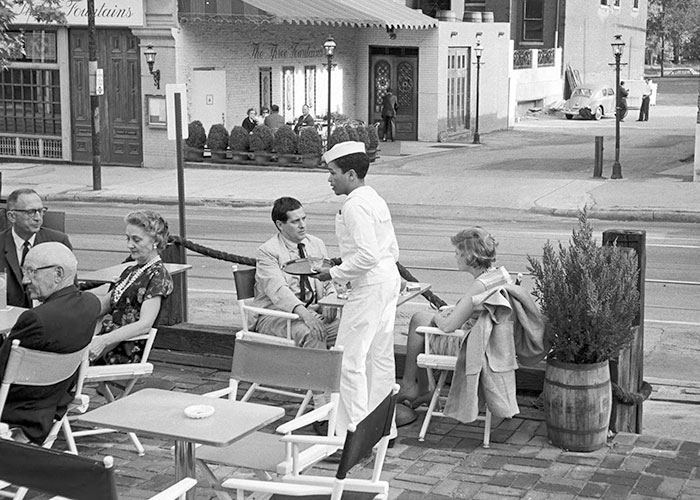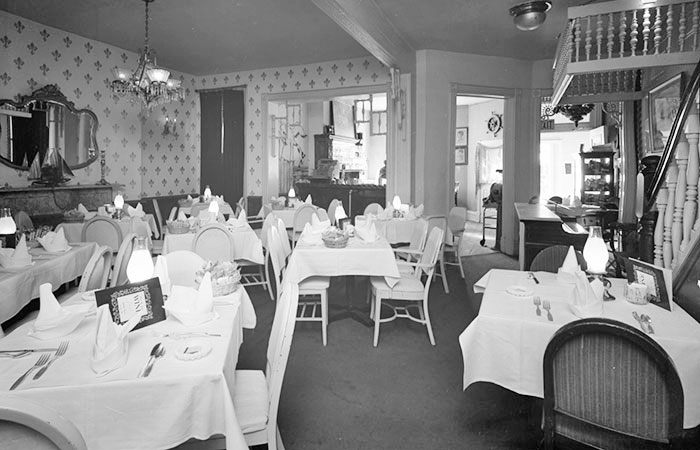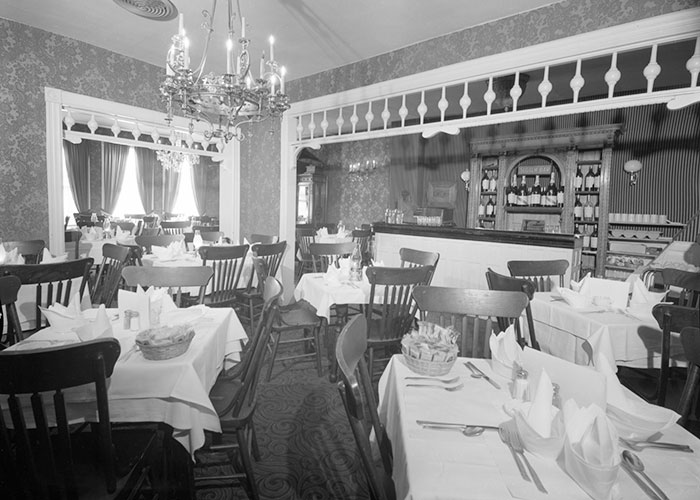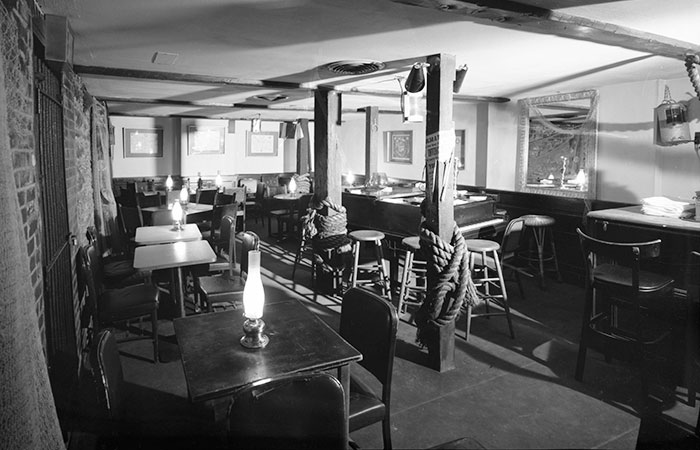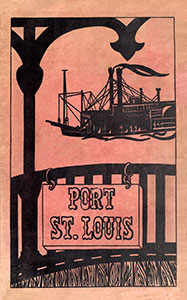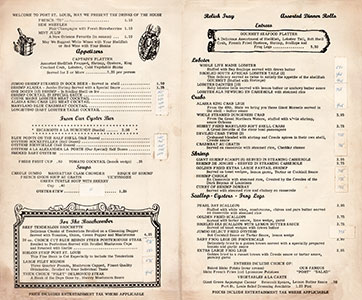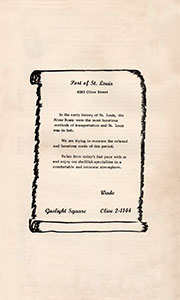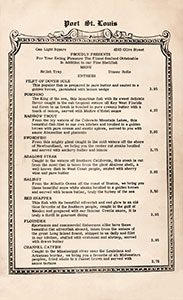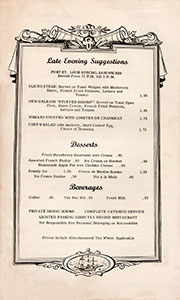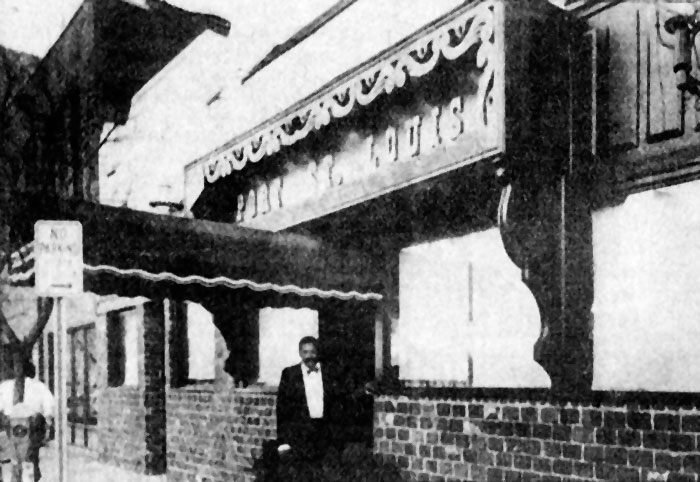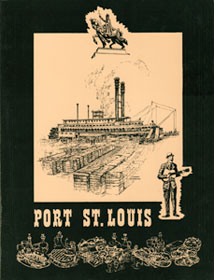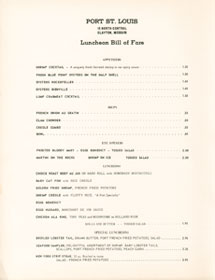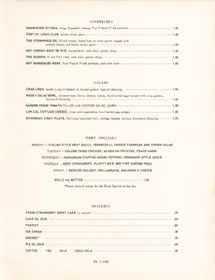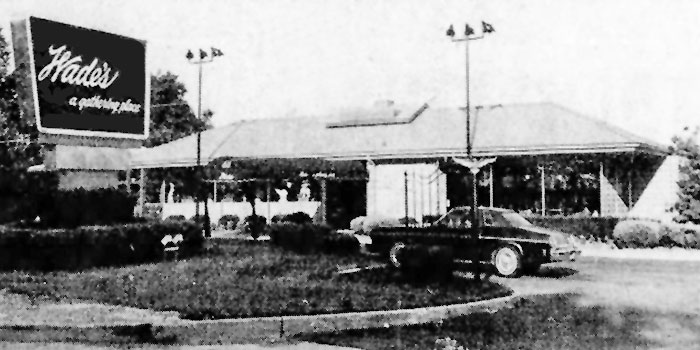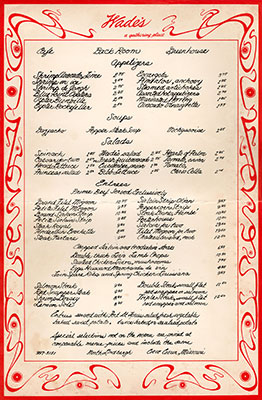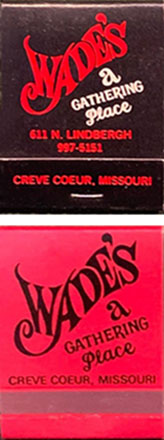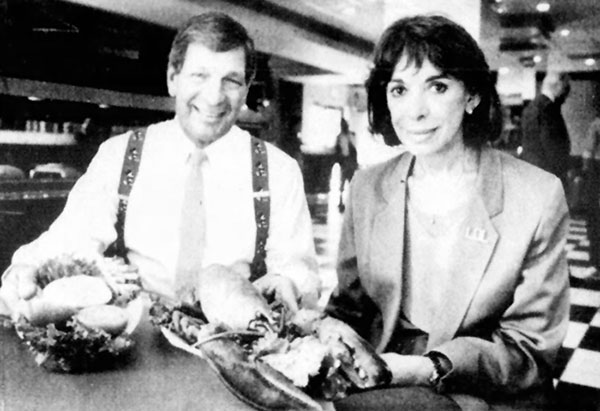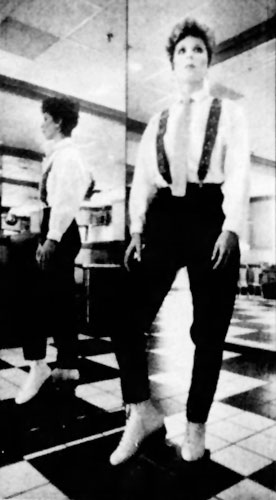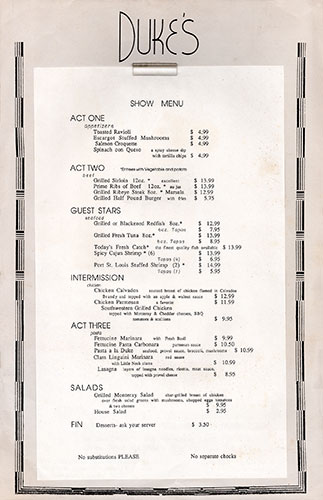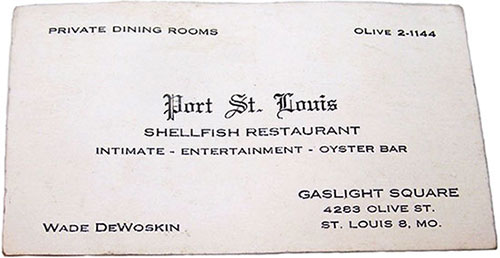|
Port St. Louis Wade Jankawitch was born in St. Louis on April 5, 1923. He and his older sister, Lorraine, lived with their parents, Harry and Stella Jankawitch. Harry and Stella Jankawitch were divorced in 1926, and by 1930, Stella had married Samuel DeWoskin. Wade Jankawitch graduated from University City High School in 1942. He attended the University of Missouri for a year before going to Purdue University for Naval officer training. He resumed his studies at Washington University after his discharge from the service in 1946.
On June 30, 1946, Wade Jankawitch married Lois
Jane Levy in the ballroom of the Forest Park Hotel.
By 1948, Jankawitch has taken his step-father's surname; Wade and Lois Jankawich had become Wade and Lois DeWoskin. DeWoskin worked at his step-father's grocery store, Ideal Market at 3301 Franklin.
By 1955, DeWoskin also ran a real estate business from the 3301 Franklin address. He bought and managed low income rental property. * * * * * In the mid 1950s, the Boyle and Olive neighborhood in St. Louis' Central West End was starting to attract an assortment of saloons, eateries and antique stores. On February 10, 1959, a tornado swept through St. Louis, toppling the KTVI tower and damaging the Arena on Oakland Avenue. It eventually bore down on Olive Street at its intersection with Boyle, causing significant destruction. Since the Boyle and Olive area was one of the hardest hit by the tornado and widely covered by the press, people began swarming to the scene to view the damage. It became one of the best known areas in the city.
The infusion of insurance money led to quick
recovery by the building owners. Old places were operating again and
new places began to appear. Soon, everyone was calling the area by a
new name – Gaslight Square. By the summer of 1960, Gaslight Square
was the hottest entertainment spot in St. Louis.
In the wake of the tornado, Wade Dewoskin acquired a three-family dwelling at 4283 Olive which had suffered significant damage. But instead of restoring it as rental property, he decided to open a restaurant.
Wade and Lois Dewoskin opened their seafood
restaurant in Gaslight Square in October of 1960. They called it
Port St. Louis.
The Dewoskins transformed the exterior of the
old Victorian mansion into an old-time harbor office. In nice
weather, tables were setup on the front patio, where diners were
served by waiters in sailor uniforms.
Inside, as one passed through the bar into the dining room, there was a feeling of Mississippi River days. Heavy molding resembling twisted rope was used as a bar rail. There was a small oyster bar made of marble, reminiscent of a river steamer. Hurricane lamps sat on while linen covered tables.
Twenty-nine varieties of fish were flown in daily to St. Louis from the East coast. Crab and shrimp and lobster; scallops and clams and sole; oysters and mussels and crayfish. Appetizers included large shrimp, still in their shells, simmer in beer. They were served on a bed of ice tinted green, with sprigs of fresh mint accompanying them. Entrees included scallops simmered in a wine sauce and broiled lobster tail with shrimp sauce. For those adverse to seafood, there was a Porterhouse steak accompanied by broiled mushrooms. Port St. Louis thrived, as Gaslight Square thrived. But as the area changed in the mid 1960s, restaurants and bars began closing. In 1966, Wade and Lois DeWoskin made the decision to move their seafood restaurant to Clayton. * * * * * The DeWoskins moved Port St. Louis to 15 North Central in Clayton towards the end of 1966. They bought the building two or three years later, although Lois DeWoskin's friends didn't think they'd make it that long.
With the move, Port St. Louis lost its nautical motif. The restaurant now boasted a rich Victorian-style decor, with deep-red wallpaper resembling brocade and glittering crystal chandeliers. The space was adorned with expensive antiques which the DeWoskins had collected over the years. Service was full of flourishes; the servers shed their sailor uniforms for black tie, dome-shaped coverings were simultaneously removed from plates upon serving and coffee was poured from a pot hovering high about the cup. Port St. Louis was now open for both lunch and dinner. The dinner menu was lengthy, with a long list of off-the-menu specials. There was also an encyclopedic wine list. Seafood was still the specialty. Each day, DeWoskin ordered what was available from various suppliers.
The dinner menu included appetizers such as herring in cream sauce, shrimp cocktail, crabmeat cocktail, escargot served in mushroom caps and oysters Bienville or Rockefeller.
Entrees included fried
shrimp, scampi in the shell and baby catfish. There was frog legs, Dover sole almondine, trout
almondine, stuffed flounder, pompano, shrimp Creole and de Jonghe,
bouillabaisse, king crab legs and lobster tails. Whole lobsters were also available. In 1972, the DeWoskins found it necessary to enlarge their restaurant, increasing its capacity to 175 diners. They acquired an adjoining dress shop which necessitated still more antique acquisitions. Their new dining room, called the Chouteau Room, was named for the historic Chouteau home on South Broadway. Many items in the new room came from the old home, including a one-of-a-kind German fireplace mantel and stunning chandeliers of copper and brass. There was red velvet flocked wallpaper and ruby lights from lighting fixtures obtained from the Three Fountains restaurant in Gaslight Square.
In February of 1976, it was announced that the
DeWoskins had purchased the Howard Johnson's restaurant at 611 North
Lindbergh Boulevard in Creve Coeur. On April 22 of that year, they
opened a new restaurant in the space which they called Wade's, A
Gathering Place.
DeWoskin completely remodeled the building. The elegant space featured artifacts from his old Gaslight Square restaurant. There was a garden room with a profusion of ferns and other greenery. A dark "back room" had tables along the walls with individual rheostats so that hanging lamps could be adjusted and menus read.
Wade's was not another
seafood restaurant. It featured beef. The menu included filet
mignon, sirloin strip, steak tartare, beef Bourguignon, steak royal,
tenderloin brochette, pepper steak, steak Diane, porterhouse,
Chateaubriand and chopped sirloin. The DeWoskins sold Wade's in 1986. It reopened for a short time in 1987 as an Asian seafood restaurant named L'Easyka. In 1989, K.C. Masterpiece Barbecue took over the space. On April 27, 1977, a fire caused heavy damage to Port St. Louis, destroying many of Dewoskin's priceless antiques.
The DeWoskins rebuilt and reopened their restaurant the following November. The remodeling offered more waiting space, including an area to sit just inside the front door, with the bar smaller and moved toward the rear. On March 17, 1986, the DeWoskins opened Duke's at 607 Grand in the University Club building, just a half block from the Fox Theatre and Powell Hall. Wade Dewoskin named his new restaurant in honor of two of his favorite performers – Duke Ellington and John "The Duke" Wayne.
Duke's had the feel of a glitzy diner. The room was decorated in pink, black and silver with pink neon lights around the walls and ceiling. There was a large white grand piano. The waitresses and waiters wore Mickey Mouse suspenders, with black pants and white shirts, and raced around on roller skates.
There was black and white tile floor in the bar
area. Several tables were covered with paper, and crayons were
provided for diners to write notes or scribble while waiting for
their drinks and food.
Dewoskin persuaded his son Tom to return to St. Louis from New York to manage Duke's.
Tom Dewoskin would
run Duke's for fifteen years. Duke's closed in 2001.
Dewoskin's Port St. Louis continues to thrive.
In the late '80s, the Port St. Louis menu
featured Florida grouper,
Boston scrod, Maine lobster, scallops, tuna, red snapper, trout,
frog legs, shrimp and swordfish. Swordfish sliced into thick steaks
and broiled in lemon butter sauce was the restaurant’s most
frequently requested dish.
Early in 1992, the DeWoskins announced their retirement. They closed their landmark seafood restaurant for the final time after serving a last crowd of diners on New Year’s Eve. A change in the public’s style of dining out had as much to do with Wade DeWoskin's decision to close Port St. Louis as age or weariness. The growing success of informal, lower-priced restaurants had dampened his enthusiasm for his trade.
Lois Dewoskin died on November 23, 2011. Wade Dewoskin died on April 21, 2018 at the age of 95.
Copyright © 2022
LostTables.com |

